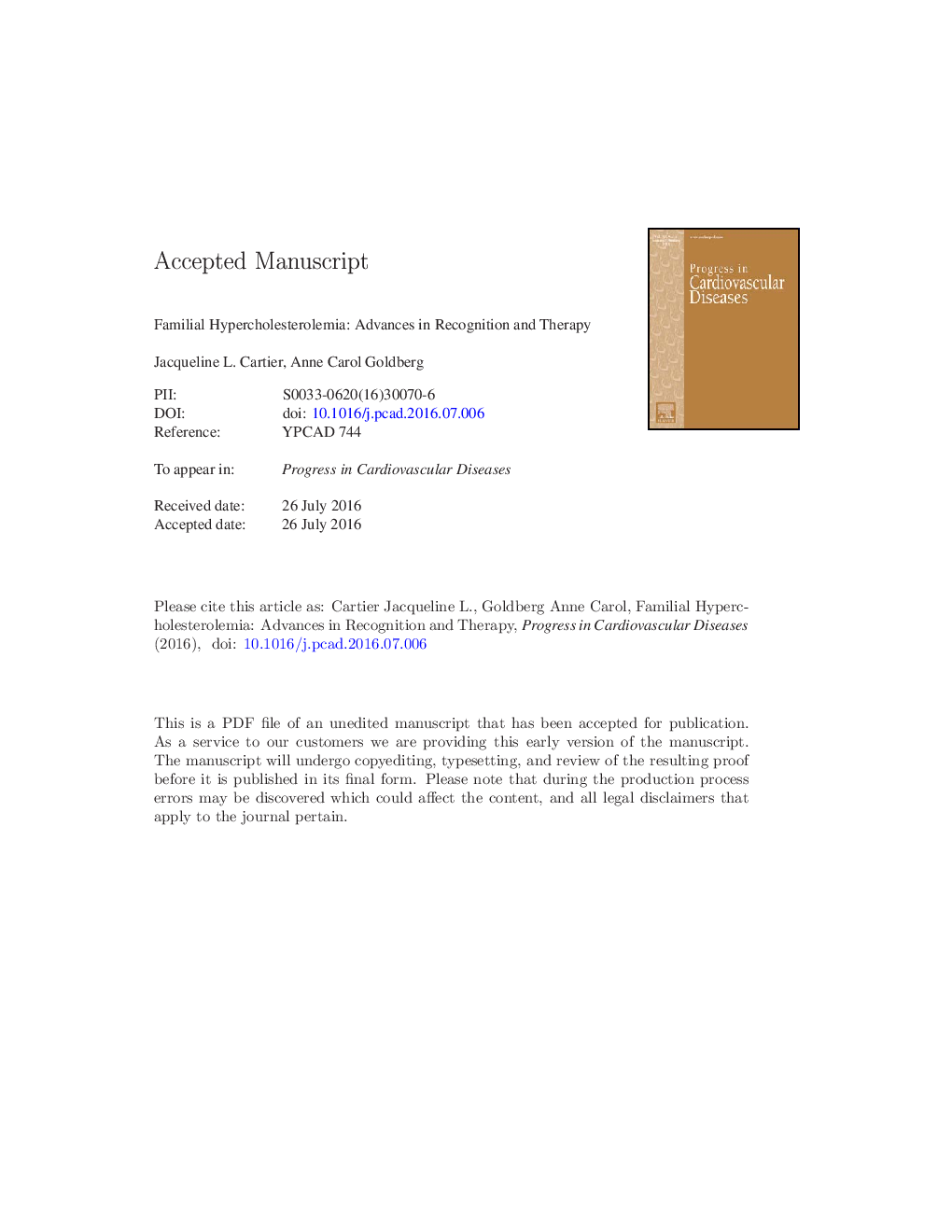| Article ID | Journal | Published Year | Pages | File Type |
|---|---|---|---|---|
| 5619640 | Progress in Cardiovascular Diseases | 2016 | 27 Pages |
Abstract
Familial hypercholesterolemia (FH) is an autosomal co-dominant genetic disorder characterized by elevated low-density lipoprotein cholesterol levels and increased risk for premature cardiovascular disease. It is under-diagnosed, yet early detection and treatment are critical to limit premature atherosclerotic disease. High-intensity statins are the mainstay of treatment, which should be started as early as possible in homozygous FH and as soon as the diagnosis of heterozygous FH is made in adults. Combination therapy is often necessary in FH patients and can include the addition of ezetimibe and bile acid sequestrants. Lipoprotein apheresis is used when pharmacotherapy is inadequate, especially for those with homozygous FH and some patients with severe heterozygous FH. Mipomersen and lomitapide are also indicated for patients with homozygous FH. The recently approved PCSK9 inhibitors, alirocumab and evolocumab, are a promising treatment and outcome studies are ongoing. This article reviews the pathophysiology, diagnosis, and management of FH.
Keywords
HeFHFDAProprotein convertase subtilisin/kexin type 9 (PCSK9)ASCVDMipomersenVLDLHoFHCHDREMSLDL-CEASLOFLDLRGOFCyPLp(a)Risk Evaluation and Mitigation Strategyloss of functionEzetimibeStatinEuropean Atherosclerosis SocietyNational Lipid AssociationGain of functioncoronary heart diseasecardiovascular diseaseAtherosclerotic cardiovascular diseaseCVDFood and Drug AdministrationcytochromeAlirocumabCascade screeninguniversal screeningLomitapideLipoprotein avery low-density lipoproteinLow-density lipoproteinLDLNlaHeterozygous familial hypercholesterolemiaFamilial hypercholesterolemiaHomozygous familial hypercholesterolemiaLiver transplantationGene therapyLow-density lipoprotein cholesterolLow-density lipoprotein receptor
Related Topics
Health Sciences
Medicine and Dentistry
Cardiology and Cardiovascular Medicine
Authors
Jacqueline L. Cartier, Anne Carol Goldberg,
